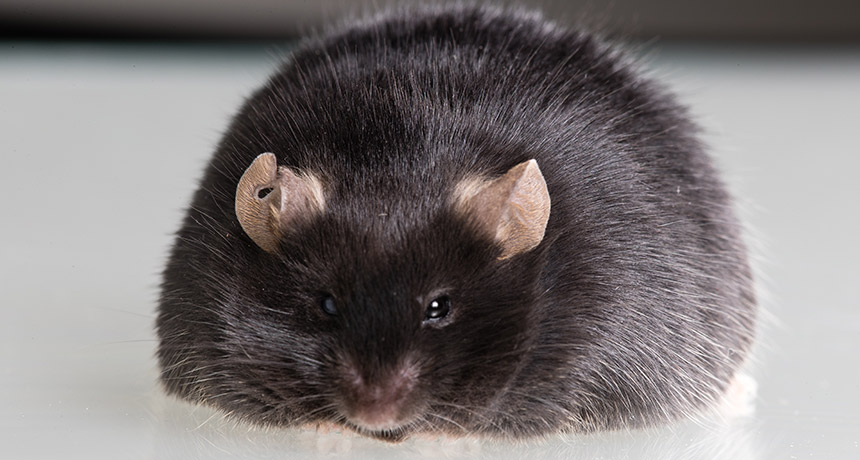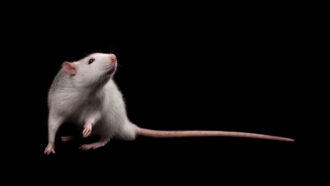behavior The way something, often a person or other organism, acts towards others, or conducts itself.
binge To do or consume something to excess — usually an unhealthy excess.
cell The smallest structural and functional unit of an organism. Typically too small to see with the unaided eye, it consists of a watery fluid surrounded by a membrane or wall. Depending on their size, animals are made of anywhere from thousands to trillions of cells. Most organisms, such as yeasts, molds, bacteria and some algae, are composed of only one cell.
diet The foods and liquids ingested by an animal to provide the nutrition it needs to grow and maintain health.
fat A natural oily or greasy substance occurring in plants and in animal bodies, especially when deposited as a layer under the skin or around certain organs. Fat’s primary role is as an energy reserve. Fat also is a vital nutrient, though it can be harmful if consumed in excessive amounts.
gene (adj. genetic) A segment of DNA that codes, or holds instructions, for a cell’s production of a protein. Offspring inherit genes from their parents. Genes influence how an organism looks and behaves.
gut An informal term for the gastrointestinal tract, especially the intestines.
hypothalamus A region of the brain that controls bodily functions by releasing hormones. The hypothalamus is involved in regulating appetite through release of appetite-suppressing hormones.
lateral An adjective for something that occurs on or to the side of something.
link A connection between two people or things.
microscope An instrument used to view objects, like bacteria, or the single cells of plants or animals, that are too small to be visible to the unaided eye.
nerve A long, delicate fiber that transmits signals across the body of an animal. An animal’s backbone contains many nerves, some of which control the movement of its legs or fins, and some of which convey sensations such as hot, cold or pain.
neuroscientist Someone who studies the structure or function of the brain and other parts of the nervous system.
obesity (adj. obese) Extreme overweight. Obesity is associated with a wide range of health problems, including type 2 diabetes and high blood pressure.








